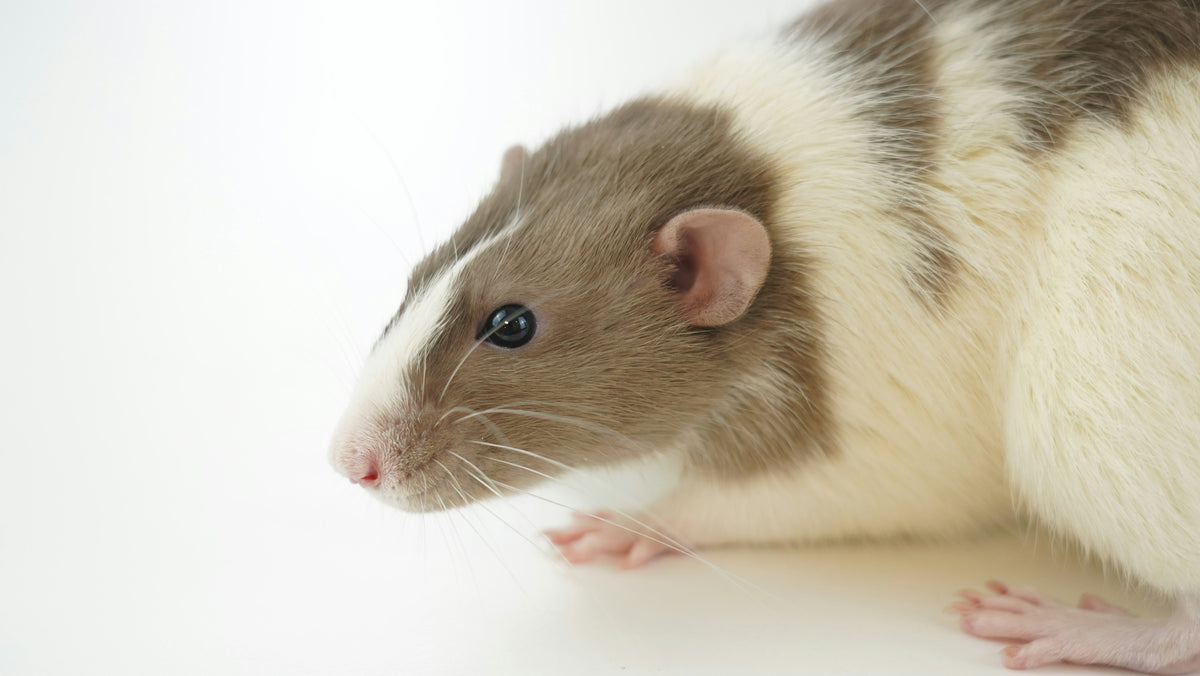Bait Stations for Rats and Mice: Why They Don't Prevent Rodents
Rodent control is a critical concern for homeowners and businesses alike. While bait stations for rats and mice have been widely used as a primary solution for managing rodent populations, they often fall short of preventing infestations. Understanding the limitations of bait stations and exploring more effective, humane alternatives can help you protect your property from these persistent pests.
What Are Bait Stations for Rats and Mice?
Understanding Bait Stations
Bait stations for rats are enclosed devices that hold poison bait to attract and kill rodents. These stations are designed to protect the bait from weather, children, pets, and non-target wildlife, ensuring that only rodents can access it. Mouse bait stations work on the same principle, offering a contained space where mice can consume poison.
There are various types of bait boxes available, including:
- Rat bait boxes and poison: These are larger, more durable boxes designed specifically for rats.
- Mice bait stations: Smaller versions of bait stations tailored for mice.
- Outdoor bait stations for mice and rats: These are weather-resistant and designed for exterior use.
How Do Bait Stations Work?
Bait stations are strategically placed in areas where rodent activity is observed, such as along walls, near food sources, or in dark, secluded areas. The bait inside the station attracts rodents, who then consume the poison. The idea is that the rodents will leave the station, consume the bait, and eventually die elsewhere. Common products like rat poison bait stations and mouse bait boxes are used in homes, businesses, and outdoor areas.
The Limitations of Bait Stations

Bait Stations Don't Prevent Infestations
While rat bait stations and mouse bait stations can be effective at killing individual rodents, they do not address the root cause of the infestation. These stations are designed to kill rodents after they have already entered your property, meaning they are reactive rather than preventive. This is a significant limitation, as it allows rodent populations to grow unchecked until they encounter the bait.
Risk of Non-Target Poisoning
Despite their design, bait stations for rats and mice still pose a risk of poisoning to non-target animals. Professional rat and mouse poison can be very powerful. If the bait station is tampered with or if rodents carry the bait out of the station, pets, wildlife, or even children could come into contact with the poison. This is a serious concern, especially for households with pets or in areas where wildlife is present.
Ethical and Environmental Concerns
Using rat poison traps and mouse poison traps raises ethical questions about the suffering caused by rodenticides. These poisons typically work by causing internal bleeding, leading to a slow and painful death for the rodent. Additionally, the use of rodenticides can have long-lasting environmental impacts, as the chemicals can contaminate soil and water sources.
Limited Effectiveness in Large Infestations
Rat killer bait stations and mouse bait traps are often insufficient when dealing with large infestations. While they may reduce the number of rodents, they rarely eliminate the problem entirely. Rodents reproduce quickly, and if the bait stations do not address the full extent of the infestation, the problem will persist.
Why Bait Stations Don't Prevent Rodents
Rodents Are Intelligent and Adaptive
Rodents are highly intelligent animals that quickly learn to avoid danger. Over time, they can become wary of rat bait boxes and mouse bait traps, making these devices less effective. In some cases, rodents may consume the bait without ingesting a lethal dose, allowing them to survive and continue breeding.
Incomplete Elimination of Rodents
Bait stations for rats and mice often fail to kill every rodent in an infestation. Some rodents may avoid the bait altogether, while others may die in inaccessible areas, leading to odor problems and potential health hazards. This incomplete elimination allows surviving rodents to continue damaging property and spreading disease.
Secondary Poisoning Risks
Another concern with rat poison traps and mouse poison traps is the risk of secondary poisoning. When a poisoned rodent is consumed by a predator, such as a hawk, owl, or domestic pet, the poison can be transferred to the predator, causing illness or death. This can disrupt local ecosystems and lead to the decline of important wildlife species.
Lack of Preventive Action
Perhaps the most significant drawback of using bait stations for rats is that they do nothing to prevent rodents from entering your property in the first place. They only address the problem after it has occurred, leaving your home or business vulnerable to future infestations. This reactive approach is less effective than preventive measures that deter rodents from entering your space at all.
RELATED: How to Naturally Keep Mice Away from Homes and Gardens
Alternatives to Bait Stations: Messinas Rodent Stopper

Messinas Rodent Stopper Liquid Animal Repellent
For a safer and more humane approach to rodent control, Messinas offers Rodent Stopper Liquid Animal Repellent. This product creates a sensory barrier that deters rodents from entering treated areas. The natural ingredients, including essential oils like rosemary, mint, and thyme, are unpleasant to rodents, encouraging them to avoid the area.
Messinas Rodent Stopper Granular Animal Repellent
In addition to the liquid repellent, Messinas also offers Rodent Stopper Granular Animal Repellent. This granular option provides long-lasting protection and is ideal for larger outdoor areas or spaces where spraying might not be practical. Simply spread the granules around the perimeter of your home or garden to create a protective barrier.
Benefits of Using Messinas Rodent Stopper
- Humane: Unlike poisons that cause painful deaths, Messinas Rodent Stopper products repel rodents without harming them.
- Safe: Made from natural ingredients, these repellents are safe to use around children, pets, and food crops.
- Effective: By creating an environment that rodents find unappealing, these products help prevent infestations before they start.
How to Use Messinas Rodent Stopper Products
Application Tips for Liquid Repellent
To use Messinas Rodent Stopper Liquid Repellent, simply spray the product around the perimeter of your home, garden, or specific areas where rodent activity is noticed. Reapplication is recommended every 30 days or after heavy rain to maintain its effectiveness.
Using Granular Repellent
For the Rodent Stopper Granular Repellent, spread the granules around the perimeter of your property or near entry points where rodents are likely to invade. This method is particularly useful in larger outdoor areas or along garden beds. Reapply as needed, especially after heavy rainfall.
Combining Products for Best Results
For maximum protection, consider using both the liquid and granular repellents in combination. The liquid repellent can be applied to specific areas where rodent activity is highest, while the granular product can be used to create a broader barrier around your property.
RELATED: Is Pet Safe Mouse Poison a Myth? Hear From the Experts
The Importance of Rat and Mouse Prevention

Seal Entry Points
One of the most effective ways to prevent rodents from entering your home or business is to seal all potential entry points. This includes gaps around doors and windows, cracks in the foundation, and holes around utility lines. Rodents can squeeze through very small openings, so it's important to be thorough in your inspection and sealing efforts.
Remove Food Sources
Rodents are attracted to food sources, so it's essential to keep your property clean and free of accessible food. Store food in sealed containers, clean up spills and crumbs promptly, and secure garbage cans with tight-fitting lids.
Maintain Your Property
Regular maintenance of your property can also help prevent rodent infestations. Keep vegetation trimmed back from buildings, remove clutter and debris where rodents could hide, and ensure that your home or business is well-maintained and in good repair.
Replace Bait Stations With Messinas!
While bait stations for rats and mice may seem like a convenient solution for rodent control, they fall short of providing comprehensive protection against infestations. These devices are reactive, addressing the problem only after it has occurred, and they come with significant risks, including non-target poisoning, ethical concerns, and limited effectiveness.
In contrast, Messinas Rodent Stopper Liquid and Granular Repellents offer a safer, more humane approach to rodent control. By creating a sensory barrier that deters rodents from entering your property, these products help prevent infestations before they start. Combined with preventive measures such as sealing entry points and maintaining a clean property, Messinas Rodent Stopper products can help you achieve long-lasting, effective rodent control.
For more information on our products and to explore our full range of animal repellents, visit Messinas. Protect your home and garden with safe and effective solutions from Messinas.


Leave a comment
This site is protected by hCaptcha and the hCaptcha Privacy Policy and Terms of Service apply.